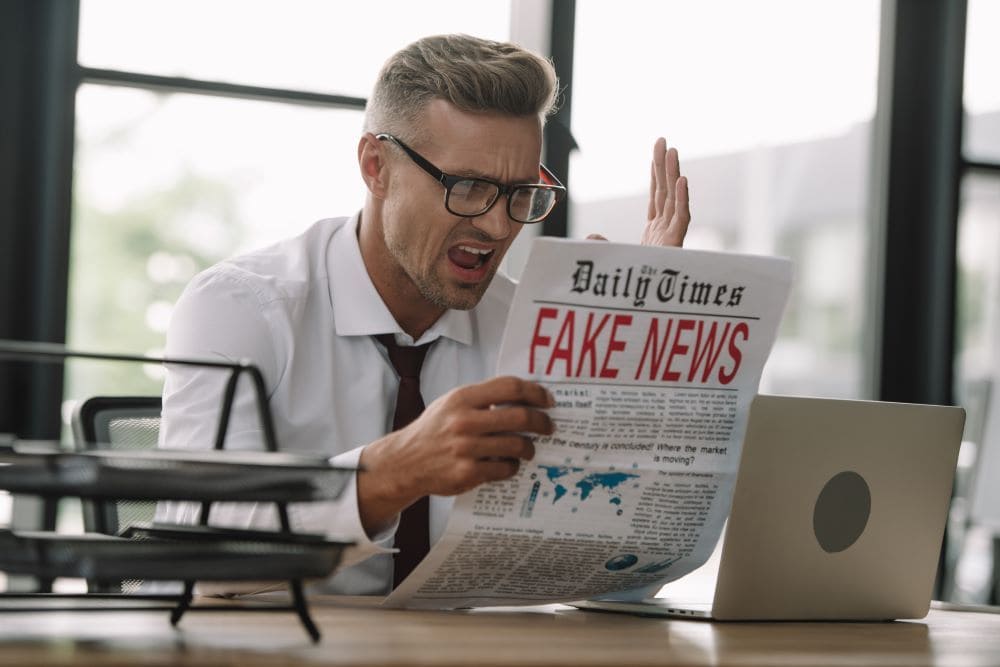
Have you ever felt cheated or misled by a company’s advertisements? Perhaps you bought a product or service based on a promise made in an ad, only to find out that the reality didn’t live up to the hype. If so, you may have been a victim of false advertising.
False advertising is a serious issue that can harm consumers and damage trust in businesses. Fortunately, there are legal protections in place to hold companies accountable for misleading or deceptive advertising practices. In this article, we’ll explore the topic of false advertising in depth, including what it is, how it’s regulated, and what your legal rights are if you’ve been affected.
What Is False Advertising?
False advertising occurs when a company makes false or misleading statements about its products or services in its advertising materials. This can include outright lies, exaggerations, or omissions of important information. The goal of false advertising is usually to attract customers or gain a competitive advantage, but it can ultimately harm consumers who are misled into purchasing something that doesn’t meet their expectations.
Is False Advertising Against the Law?
Yes, false advertising is illegal under both federal and state laws. The Federal Trade Commission (FTC) is the primary federal agency responsible for regulating advertising practices and enforcing laws against false advertising. Additionally, individual states have their own laws and regulations governing deceptive trade practices.
Federal False Advertising Law
The FTC Act prohibits deceptive or unfair advertising practices in commerce. Under this law, the FTC has the authority to take enforcement action against companies that engage in false advertising. This can include issuing fines, requiring corrective advertising, or even pursuing legal action in federal court.
State Unfair Competition & False Advertising Laws
In addition to federal law, each state has its own laws and regulations related to false advertising and unfair competition. These laws may vary from state to state but generally prohibit similar conduct to the FTC Act. State attorneys general and consumer protection agencies are typically responsible for enforcing these laws at the state level.
Types of False Advertising
False advertising can take many different forms, including:
Misleading Claims: Misleading claims involve deceptive statements about a product or service to mislead consumers, such as promising overnight wrinkle removal when only providing temporary hydration.
Bait and Switch: This tactic lures customers with an attractive price for a product, then persuades them to buy a more expensive alternative by claiming the advertised item is sold out.
Hidden Fees: Concealing additional costs like shipping or service charges until after purchase considered false advertising, such as a car rental company adding insurance fees on top of the advertised rental rate.
Deceptive Packaging: Using misleading labels or packaging to exaggerate product benefits, like featuring images of fresh fruit on a cereal box with minimal actual fruit content.
Testimonial Deception: False endorsements from individuals who haven’t used the product, like featuring fake before-and-after photos in weight loss supplement ads.
Comparative Advertising: Making unfair comparisons between products, such as claiming a soda tastes better than competitors’ without unbiased test conditions.
False Guarantees: Offering guarantees or warranties with hidden conditions or exclusions, like a mattress company’s “lifetime guarantee” with impractical terms.
Exaggerated Performance Claims: Making unsubstantiated false claims about a product’s performance, like asserting a cleaning product removes 99.9% of germs without evidence.
Examples of False Advertising
Some common examples of false advertising include:
A weight loss supplement claiming to help users lose 10 pounds in a week with no diet or exercise required.
A car dealership advertising a “sale” price for a vehicle but failing to disclose additional fees and charges.
A food product claiming to be “all natural” when it contains artificial ingredients or preservatives.
A cell phone company advertising unlimited data plans but throttling speeds after a certain usage threshold is reached.
Can You Sue a Company for False Advertising?
Yes, you can sue a company for false advertising. False advertising is illegal under both federal and state laws, and consumers have the right to take legal action against companies that engage in deceptive practices. By filing a false advertising claim, you can seek compensation for any financial losses you’ve incurred as a result of the misleading advertisements.
How to Report a Violation of False Advertising Laws
Reporting a violation of false advertising laws is a crucial step in holding companies accountable for their deceptive practices and protecting consumers from being misled. If you believe you’ve encountered false advertising, here’s a guide on how to report the violation:
Document the Advertisement: Keep a record of the advertisement in question, including any relevant screenshots or printouts.
Contact the Company: Reach out to the company directly to express your concerns and request a resolution.
File a Complaint: You can file a complaint with the FTC or your state’s attorney general’s office, providing details about the false advertising and any harm you’ve suffered as a result.
Report to Industry Organizations: Submit a complaint to industry-specific organizations like the National Advertising Division (NAD) for oversight and resolution.
Seek Legal Advice: If you’ve suffered significant harm due to false advertising, you may want to consult with a lawyer to explore your options for pursuing legal action.
False Advertising Penalties
Companies found guilty of false advertising may face various penalties, including:
Monetary Damages: Consumers who have been misled by false advertising may be entitled to compensation for their financial losses.
Fines: The FTC and state authorities can impose fines on companies that violate false advertising laws.
Injunctions: Courts may issue injunctions prohibiting companies from engaging in further deceptive practices.
Class Action Lawsuits: In cases where multiple consumers have been affected by false advertising, class action lawsuits may be pursued to seek damages on behalf of the group.
How Much Can You Win for a False Advertisement Claim?
If you decide to pursue legal action against a company for false advertising, you may be wondering how much compensation you could potentially receive. The amount you can sue for false advertising can vary depending on several factors, including:
Actual Damages: This includes any financial losses you’ve suffered as a result of the false advertising, such as the cost of purchasing the product or service.
Punitive Damages: In some cases, courts may award punitive damages to punish the defendant for particularly egregious conduct and deter future violations.
Attorney’s Fees: If you prevail in a false advertising lawsuit, the court may order the defendant to pay your attorney’s fees and legal costs.
Class Action Lawsuits: If multiple consumers have been harmed by the same false advertising campaign, they may be able to join together in a class action lawsuit to seek compensation collectively.
How an Attorney Can Assist You in a False Advertising Case
When facing the complexities of false advertising claims, having an experienced attorney by your side can make all the difference. From legal expertise to courtroom representation, here’s how an attorney can assist you:
Legal Guidance: Attorneys specializing in false advertising laws possess the knowledge to assess your case, review relevant laws, and determine its strength.
Evaluation of Damages: Attorneys help assess financial losses incurred due to false advertising, calculating potential compensation you may be entitled to seek.
Gathering Evidence: Attorneys collect relevant evidence, such as false advertisements and expert opinions, to support your misleading claim and strengthen your case.
Negotiation with the Company: Attorneys represent your interests during negotiation, advocating for a fair resolution and ensuring your rights are protected.
Filing a Lawsuit: Attorneys handle all legal documentation, compliance, and court representation if negotiation fails and a lawsuit is necessary.
Class Action Lawsuits: Attorneys may recommend joining a class action lawsuit if multiple consumers are affected, increasing chances of success.
Compliance with Legal Requirements: Attorneys ensure your case complies with all legal requirements, avoiding potential pitfalls that could jeopardize your case.
Maximizing Compensation: Attorneys work to maximize your compensation through settlement negotiations or trial verdicts, ensuring you receive the full measure of damages.

Uncover the Truth Behind False Advertising with BLG
False advertising is a serious issue that can harm consumers and undermine trust in the marketplace. Fortunately, there are laws in place to protect consumers from deceptive business practices and hold companies accountable for their actions.
If you’ve been a victim of false advertising, don’t let deceptive practices go unchecked. Take action today with BLG by your side. Our experienced attorneys are here to help you to deal with the complexities of the legal system and fight for the justice you deserve.
Contact our law firm now to schedule a free consultation.
FAQs
How do you win a false advertising lawsuit?
To win a false advertising lawsuit, you typically need to prove that the advertisement made false or misleading advertising statements that influenced consumer behavior, resulting in harm or damages.
What happens if a company falsely advertises?
If a company is found guilty of false ad, it can face various consequences, including legal penalties, fines, injunctions to cease the false advertising, and damage to its reputation.
What makes an advertisement false liable to sue?
An advertisement can be considered liable to sue if it contains false or misleading statements that deceive consumers and influence their purchasing decisions, leading to harm or financial loss.
Can you sue a company for lying about a product?
Yes, you can sue a company for lying about a product if their false statements in advertising or misleading marketing result in harm or financial loss to you as a consumer. However, the success of the lawsuit depends on proving the falsehood and its impact on consumer behavior.




